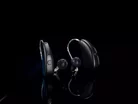How tech enables natural hearing

By 2050, the World Health Organization estimates nearly one in four people globally will experience some form of hearing loss. About 700 million of them will need to take corrective action. These trends will have a severe impact on people’s lives unless addressed, in part, by modern technology.
There are bodies of research to indicate that hearing loss can lead to social isolation. Sufferers tend to withdraw from collective situations because they can’t always make out clearly what others are saying, and when they focus on what’s going on around them, they grow fatigued from over-concentrating. In one 2016 study of adults with mild to moderate hearing loss, researchers wrote, “The most substantial consequences of hearing loss reported by the participants were activity limitations and participation restrictions.”
Furthermore, studies from around the globe have shown that social isolation can have an adverse effect on cognitive function over time. People with hearing loss not only keep to themselves, but they also volunteer less in their communities, engage less in local economies, and participate less in their spiritual wellbeing, all leading to a potential decline in cognitive abilities.
What all this means to the WHO and others that study ways to promote healthy lives around the world is that hearing health and social participation cannot be addressed separately. And that taken together, healthy life participation through better hearing is critical to the common good.
Going Beyond Unnatural Hearing Aids
The question then becomes, for people who suffer from hearing loss, how do we achieve better hearing and what does that hearing sound like? Assistive technology in the form of hearing aids has been around for well over a century. To this day, however, it is estimated that only about 17 percent of people who could benefit from hearing aids use them, putting them at risk of social isolation and cognitive decline.
The goal should be to enable greater participation through natural hearing, aided by technology. It’s one thing to enable better hearing; it’s another to create a natural hearing experience that fosters participation. The easier and more natural it is to improve one’s hearing, the more we can expect people to do so. But that means addressing the limitations of current hearing solutions.
There are two important reasons people eschew hearing aids, and both reflect a common problem: For too long, hearing aids have been an unnatural experience. On one hand, wearing what have often been bulking hearing aid devices has been cumbersome and — to many — stigmatizing. On the other hand, the amplified sound that many hearing aids produce doesn’t resemble sound as it exists in the natural world. In attempting to enhance sound, hearing aids tend to create distortion or an auditory scene unfamiliar to the brain and therefore difficult to process.
Modern, digital hearing aids are physically designed to fit more naturally — to be discreet, comfortable and lightweight, thereby helping overcome a user’s hesitancy to wear them. But more importantly, they’re technologically designed to sound more natural. They more faithfully recreate the auditory scenes that wearers came to expect before their hearing loss, enabling the natural hearing that allows them to better participate in daily activities.
Natural Sound for Effortless Hearing
Widex engineers recently developed a hearing aid called Moment. It includes a unique ZeroDelay processing technology, ideally suited for people with mild to moderate hearing loss, that eliminates distortion to help create natural sound.
Here’s how it works: Traditional digital hearing aids require anywhere from 4 to 8 milliseconds to process sound and deliver the enhanced audio to users. But not everything the wearer hears is processed through the hearing aids. When processed sound and unprocessed sound mix in the ear canal, the processing delay means that there’s a mismatch between the two that damages sound quality, making sound unnatural. Voices may sound artificial; environmental sounds can be distorted; and overall, the unnatural sound is strenuous to listen to over time.
The new Widex Moment hearing aids reduce this processing delay to just 0.5 milliseconds, effectively eliminating the distortion many hearing aid users notice when direct and processed sound come together. The result is a much more natural hearing experience and better sound quality, which is critical to overcoming the social challenges that might otherwise limit participation.
In a Widex study of hearing aid users who tested out the Moment processing, 90 percent said they were satisfied with their ability to participate in daily life; significantly fewer users said the same of their own hearing aids, suggesting that natural sound is a critical feature to hearing aid adoption and wearer participation.
Along with other Widex developments, such as the ability to process a wider input range and slow-acting compression techniques that preserve the nuance of natural sound, we can now create hearing aids that dramatically improve hearing while integrating seamlessly into users’ lives. For people with hearing loss, this ability to perceive naturally the world around them helps promote participation in an engaging, fulfilling life.



